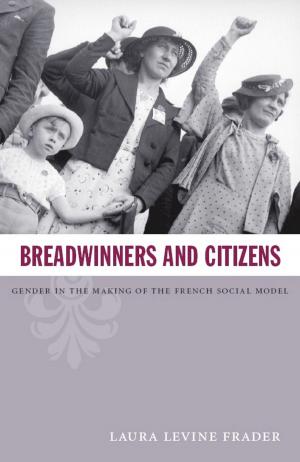The Oriental Obscene
Violence and Racial Fantasies in the Vietnam Era
Nonfiction, Entertainment, Film, History & Criticism, Performing Arts, Social & Cultural Studies, Social Science, Cultural Studies, Popular Culture| Author: | Sylvia Shin Huey Chong | ISBN: | 9780822393405 |
| Publisher: | Duke University Press | Publication: | November 9, 2011 |
| Imprint: | Duke University Press Books | Language: | English |
| Author: | Sylvia Shin Huey Chong |
| ISBN: | 9780822393405 |
| Publisher: | Duke University Press |
| Publication: | November 9, 2011 |
| Imprint: | Duke University Press Books |
| Language: | English |
The Oriental Obscene is a sophisticated analysis of Americans’ reactions to visual representations of the Vietnam War, such as the photograph of the “napalm girl,” news footage of the Tet Offensive, and feature films from The Deer Hunter to Rambo: First Blood Part II. Sylvia Shin Huey Chong combines psychoanalytic and film theories with U.S. cultural history to explain what she terms the oriental obscene: racialized fantasies that Americans derived largely from images of Asians as the perpetrators or victims of extreme violence. Chong contends that these fantasies helped Americans to process the trauma of the Vietnam War, as well as the growth of the Asian American population after the Immigration and Nationality Act of 1965 and the postwar immigration of Southeast Asian refugees. The oriental obscene animated a wide range of political narratives, not only the movements for and against the war, but causes as diverse as the Black Power movement, law-and-order conservatism, second-wave feminism, and the nascent Asian American movement. During the Vietnam era, pictures of Asian bodies were used to make sense of race, violence, and America’s identity at home and abroad.
The Oriental Obscene is a sophisticated analysis of Americans’ reactions to visual representations of the Vietnam War, such as the photograph of the “napalm girl,” news footage of the Tet Offensive, and feature films from The Deer Hunter to Rambo: First Blood Part II. Sylvia Shin Huey Chong combines psychoanalytic and film theories with U.S. cultural history to explain what she terms the oriental obscene: racialized fantasies that Americans derived largely from images of Asians as the perpetrators or victims of extreme violence. Chong contends that these fantasies helped Americans to process the trauma of the Vietnam War, as well as the growth of the Asian American population after the Immigration and Nationality Act of 1965 and the postwar immigration of Southeast Asian refugees. The oriental obscene animated a wide range of political narratives, not only the movements for and against the war, but causes as diverse as the Black Power movement, law-and-order conservatism, second-wave feminism, and the nascent Asian American movement. During the Vietnam era, pictures of Asian bodies were used to make sense of race, violence, and America’s identity at home and abroad.















